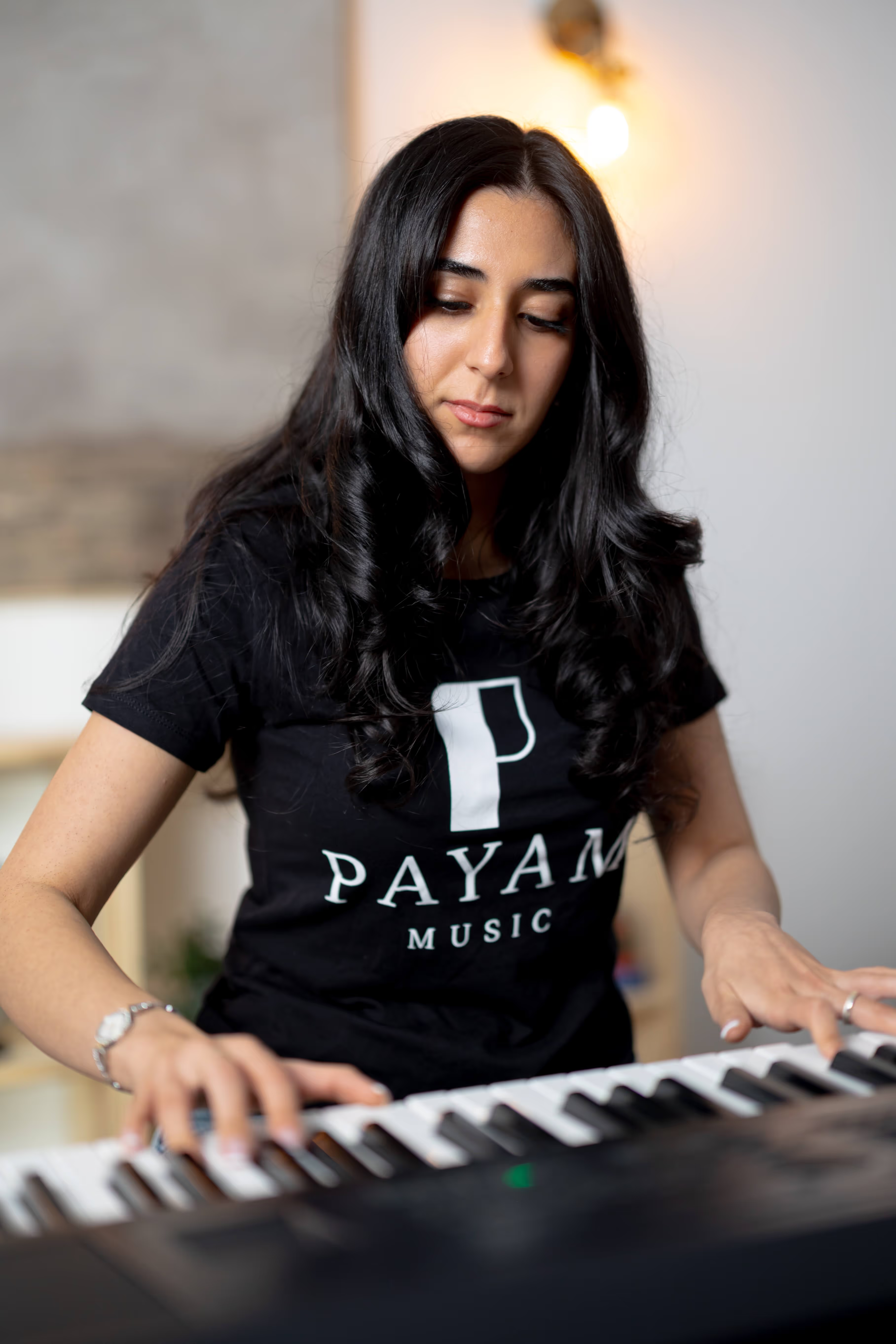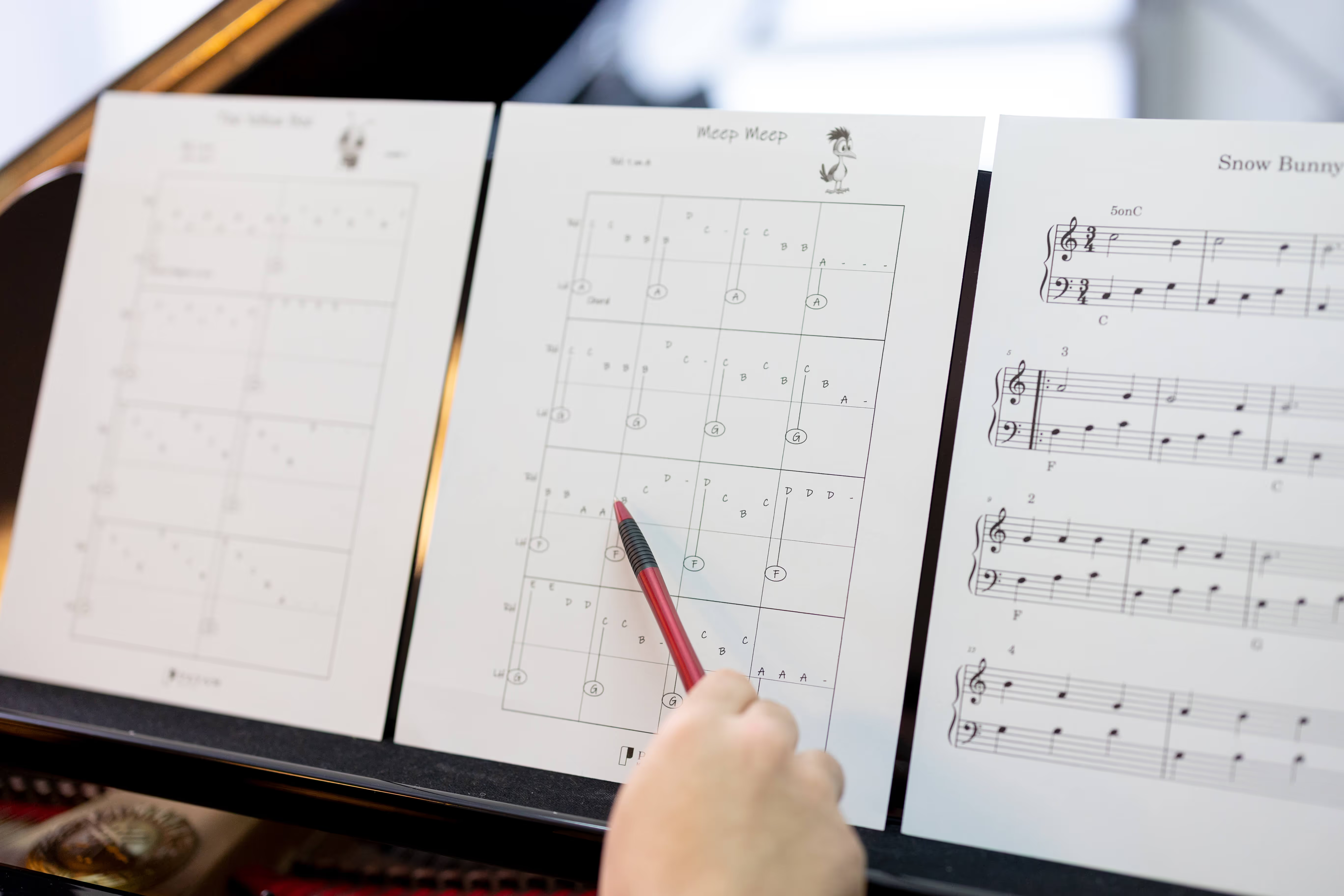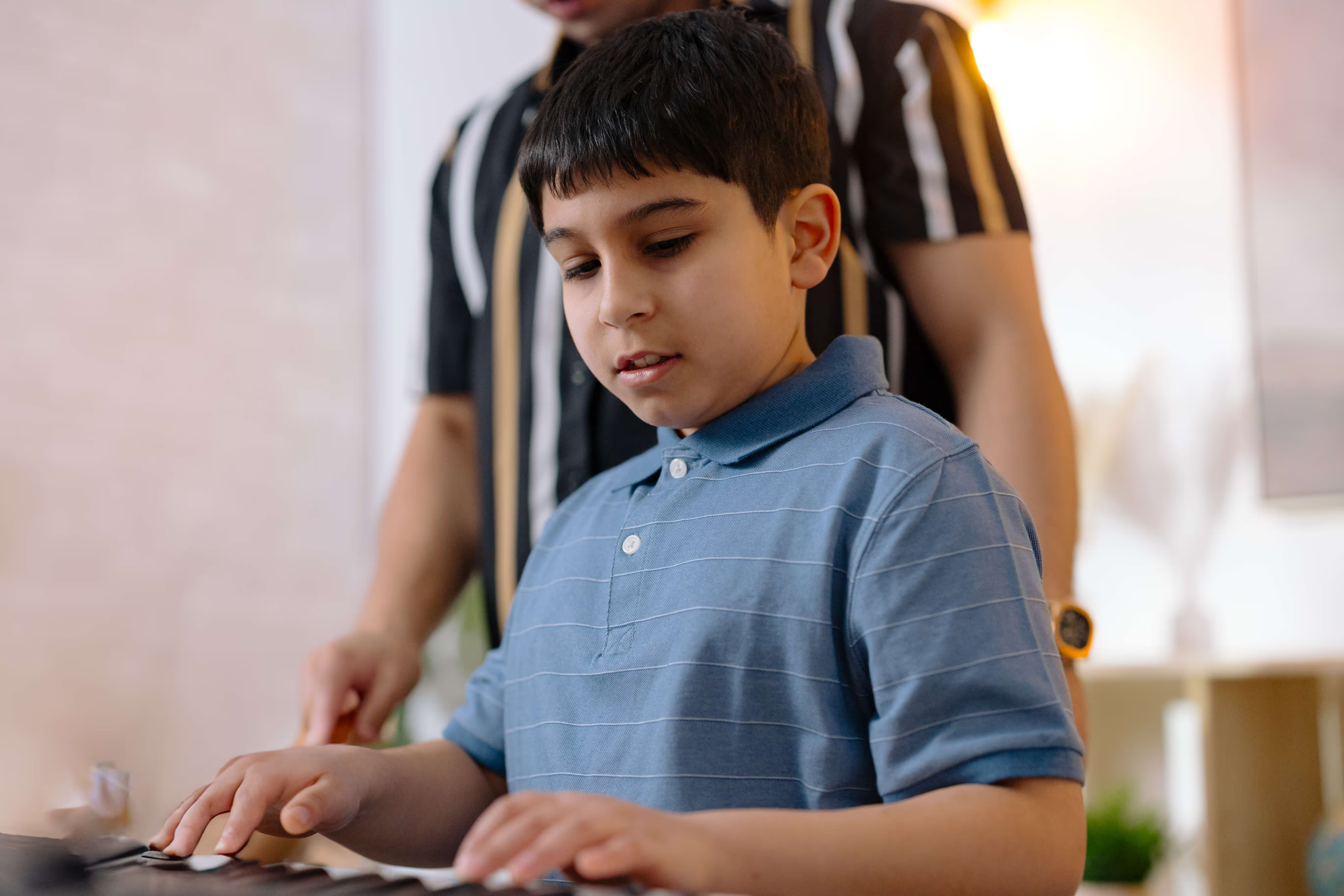Curriculum and methodology
Music is a language, and the Payam Method inspires a lifelong love of piano based on the psychology of language learning.










Quickly master piano
Easy-to-understand notation and familiar songs make learning piano more effective and a lot more fun.
Alphanumeric notation makes piano accessible
Starting with ABCs and 123s builds confidence from day one. Even though we start with letters and numbers as notation instead of traditional sheet music, students begin to understand intervals and note relationships.
Custom arrangements to teach any song
Students can learn any song, whether it’s a classical composition or a more familiar one. Playing a song you already love makes practicing a joy, so much so that students call it “fun-work” instead of homework.
A faster way to read music
Traditional sheet music often forces students to read individual notes, a slow and tedious process that can lead to frustration and quitting. We teach our students to recognize right-hand patterns and left-hand progressions, empowering them to read music holistically, not note by note.
Mastery of building blocks
Just as language learning builds on root words, prefixes, and suffixes, our method teaches techniques that can be applied across multiple pieces versus the traditional way of playing the same song over and over again.
No more complaining about practice
Finally, we believe in emphasizing the "play" in playing piano. If a student loves the instrument, loves the teacher, and loves the songs, there's no way they won't become successful… and have a blast along the way.
Alphanumeric notation makes piano accessible
Starting with ABCs and 123s builds confidence from day one. Even though we start with letters and numbers as notation instead of traditional sheet music, students begin to understand intervals and note relationships.
Custom arrangements to teach any song
Students can learn any song, whether it’s a classical composition or a more familiar one. Playing a song you already love makes practicing a joy, so much so that students call it “fun-work” instead of homework.
A faster way to read music
Traditional sheet music often forces students to read individual notes, a slow and tedious process that can lead to frustration and quitting. We teach our students to recognize right-hand patterns and left-hand progressions, empowering them to read music holistically, not note by note.
Mastery of building blocks
Just as language learning builds on root words, prefixes, and suffixes, our method teaches techniques that can be applied across multiple pieces versus the traditional way of playing the same song over and over again.
No more complaining about practice
Finally, we believe in emphasizing the "play" in playing piano. If a student loves the instrument, loves the teacher, and loves the songs, there's no way they won't become successful… and have a blast along the way.
How Payam Music is different
Traditional lessons get a bad rap for a good reason.

lessons
Listen to how
our students progress
The Payam Method is more than a new way to teach piano. It’s a way to build confidence and make learning an instrument a lifelong skill.
Your questions, answered
The song selection students receive are based on their personal taste. If a student has a passion for learning classical music, or any specific genre or style of music, our curriculum can be tailored to fit the personal needs.
We customize the curriculum to help fit the musical goals each student has. We have an amazing way of teaching our students the theory of piano without having them realizing they've been learning it! For students that want to dive deeper into musical theory, the personalization of our curriculum allows for that as well!
Yes, of course! While we start our beginner level students with our patented alphanumeric notation, sheet music is introduced within the first few levels. We teach the beginner techniques in our notation, and then the student learns how to map it and read it in sheet music. This process continues back and forth until the student reaches the mid intermediate category, where at this point they are fully only reading sheet music. The transition has been seamless for thousands of students.
We think it’s bananas that piano has been taught the same way for hundreds of years. Just as a child learns to speak before reading or writing, the Payam Method introduces piano in a natural, intuitive way. Our approach makes learning more accessible to all levels of learners by drawing from the psychology of language learning. For example, we start with our alphanumeric notation — using the familiar language of ABCs and 123s, not the foreign language of sheet music — to help students make meaningful progress and build confidence from day one. Read more about our curriculum.
120+ 5-star reviews